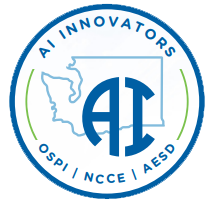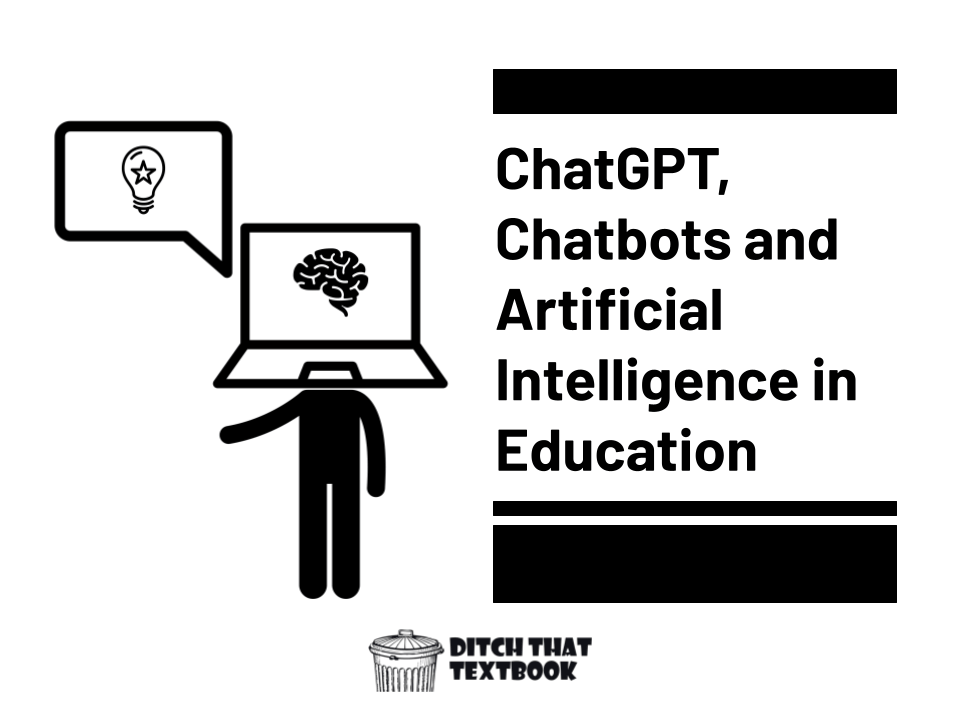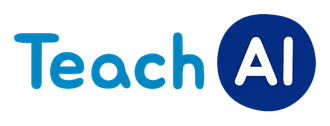Utilizing educational technology (EdTech) staff and resources, the network is fostering AI literacy and integration in Washington’s educational landscape, ensuring educators are equipped to navigate and implement AI technologies effectively.
Advancing AI Integration
The network has developed several key initiatives focusing on AI in school districts:
- AI Innovation Summit: An annual event where district and school teams explore AI's role in education.
- Statewide Professional Development: ESDs are hosting both in-person and virtual training sessions for educators and professionals interested in learning about AI and how to integrate tools in their daily work.
- AI Innovators Trainer Resources: This comprehensive five-module Canvas course is designed for district trainers and educators aiming to integrate AI into teaching practices.
- Networking and Learning Sessions: These sessions focused on shared learning, networking, and resource sharing, addressing topics such as ethical AI use, administrative efficiency, and practical applications for educators.
Upcoming Statewide AI Classes
Click on a listing below to learn more and register:
Enroll Now in AI Innovators: Trainer Resources Canvas Course
 The AESD Network partnered with OSPI, NCCE, and Microsoft to launch an aligned series of AI learning opportunities designed for district trainers and educators looking to integrate AI into teaching practices. Whether you’re looking to enhance your own skills or train others, this course offers a comprehensive journey through the possibilities AI brings to education. This training can either be used to enhance your own learning or used to train your entire staff. These five modules will provide the beginnings for you or your staff.
The AESD Network partnered with OSPI, NCCE, and Microsoft to launch an aligned series of AI learning opportunities designed for district trainers and educators looking to integrate AI into teaching practices. Whether you’re looking to enhance your own skills or train others, this course offers a comprehensive journey through the possibilities AI brings to education. This training can either be used to enhance your own learning or used to train your entire staff. These five modules will provide the beginnings for you or your staff.
AI Innovators Materials
The AI Innovators sessions have ended but the AI Innovators materials are now posted in Canvas as free content training materials. You may use the information below to access the material.
Broken into five modules, the training begins with the understanding of AI, followed by the application and ethics, prompt engineering and finalizes by having the learner create a resource guide for staff or personal use.
AI Innovators: Trainer Resources Canvas Course
This course has enabled open enrollment. Students can self-enroll in the course on Canvas. Alternatively, they can register on Canvas and use the following join code: ARMEAN.
Learn more about each module:
Module 1: Understanding AI
Designed to enhance participants’ awareness and understanding of artificial intelligence (AI). It will delve into specific details to establish a strong foundational understanding of AI operations. Participants will also explore the historical context and implications of AI and its future impact. The primary aim is to emphasize the significance of proficiency in essential AI skills and equipping educators and learners for the digital world that awaits them. Lastly, participants will actively engage in discussions on the importance of human-centered guidance with AI and best practices for integrating AI into educational settings.
Module 2: Exploring AI
Explore the world of generative AI in the classroom. This module will foster discussion on the current state of AI in educational practices, with participants investigating the capabilities of AI to impact teacher productivity and student needs. Participants will also explore the basics of prompt engineering and begin exploring a variety of AI tools to use in their learning design.
Module 3: Utilizing AI
Explore AI through both teacher and student perspectives. Participants will gain skills to elevate their teaching methods and propel student learning by crafting standards-aligned lessons infused with AI. This immersive module equips you with practical insights, impactful tools, and engaging strategies to harness AI’s potential, fostering deeper student understanding and enhancing classroom engagement.
Module 4: Adopting AI
Explore AI by analyzing state standards. Participants will gain skills to elevate their teaching methods and propel student learning by creating standards-aligned activities with AI assistance. This hands-on module gives practice with creating activities that are standard aligned with real-world resources to foster a deeper student understanding and enhancing classroom engagement.
Module 5: Becoming an Innovator for AI
Engage in collaborative exercises to craft a customized AI Resource Guide, targeting school leaders, communities, students, or teachers to enhance understanding and foster engagement. Additionally, the module will give participants time to collaboratively explore innovative ideas, share practical experiences, and ignite discussions on how best to use AI.
Networking and Learning for Leaders
In fall 2023 we launched a series of three statewide networking and learning sessions that bring together school and district system leaders to elevate and explore top of mind AI issues in our K-12 system together.
Each session engaged school/district leaders in:
Shared learning
District networking and sharing (breakout sessions)
Resource sharing and additional learning opportunities for educators to access
Session Materials
Session 1: Bringing AI to School Systems – Support for Leaders - October 30, 2023
This first session included a keynote from Kris Hagel, Director of Digital Learning at Peninsula School District, and several breakout sessions ranging from Ethical AI Use to an open Q&A discussion with Superintendents.
Session 2: Implementing AI for Administrative Efficiency - January 22, 2024
This second session integrated feedback from participants in our first session. Discussion and presentation room topics included:
- Breakout Session A: Beginning the AI Guidance/Process (AI Toolkit)
- Breakout Session B: Effective Prompt Strategies-Enhancing AI Prompts for Optimal Results
- Breakout Session C: Summarizing and Streamlining Communications with AI
- Breakout Session D: AI in Action: Practical Applications for Administrators
- Breakout Session E: Data-Driven Insights: Using School District Analytics with AI
- Breakout Session F: AI Integration: Engaging Tech Departments
Session 3: AI Learning Series Session 3: AI in Action - May 20, 2024
This session featured insights from seasoned district and building leaders as well as expert representatives from OSPI and WSSDA. Participants navigated key questions and shared strategies in the pursuit of pioneering educational practices:
- How have you instructed staff on the use of AI (or how do you plan to)?
- How has your district supported you in the use of AI?
- What are the visions and goals moving forward?
- What are you considering as you are moving forward?
The session concluded with learning about the current and upcoming opportunities available around the state, as well as the opportunity to share needs going forward.
AI State Guidance & Resources
Bringing AI to School: Tips for School Leaders
(AASA, ASCD, ISTE, NAESP, NASSP (2023))
AI Summit 2025 Materials
AI Summit 2024 Materials
AI Educator Resource Library
This resource is an extensive collection of programs and information. Use these resources as a springboard to delve deeper into each topic and curate a diverse information collection.
Why AI is Important for All Students
Why do all students need to understand AI? That’s the first question we asked Charles Randolph in this conversation about why AI matters in the classroom and his own learning journey in the AI Explorations program. Charles is the Senior Instructional Technology Coordinator for Arlington Public Schools in Arlington, Virginia.
Watch the full video to learn why AI instruction is a matter of equity and is essential knowledge for students as they prepare to enter the workforce.

ChatGPT, Chatbots and Artificial Intelligence in Education
What is artificial intelligence? How will it impact education? How can we teach tomorrow knowing this exists … and how can we build for the future while using AI in the classroom?
This mega post is full of ideas. It also touches on the concept of cheating and plagiarism — and what it will mean in an AI-integrated future.
Sample Resources
Get Started in Your Classroom - ISTE & GM
The Hands-On AI Projects for the Classroom guides from ISTE and GM provide elementary, secondary, elective and computer science teachers with innovative curricular resources about AI across various grade levels and subject areas. Each guide includes background information and four student-driven projects that directly relate to subject area standards, while providing foundational learning on what AI is, how it works and how it impacts society.
- Hands-On AI Projects for the Classroom – A Guide for Elementary Teachers (PDF)
- Hands-On AI Projects for the Classroom – A Guide for Secondary Teachers (PDF)
- Hands-On AI Projects for the Classroom – A Guide for Electives Teachers (PDF)
- Hands-On AI Projects for the Classroom – A Guide for Computer Science Teachers (PDF)
- Hands-On AI Projects for the Classroom – A Guide on Ethics and AI (PDF)
AI + Utah Education Network (AI +UEN)
This is a collection of tools that are applicable to anyone, anywhere! Specifically geared towards Utah teachers, UEN supports a diverse toolset for Utah teachers, administrators, and students.
Check the link for a variety of AI by content area, recommended articles, and videos.
ChatGPT and Beyond: How to Handle AI in Schools
While ChatGPT and other AI assistants have captured the headlines, we interact with artificial intelligence every day in our lives. In this post, Christine Elgersma of Common Sense Education lays out current concerns, what AI means for the future, how to handle AI concerns, how to handle ethics involved, other ways to use AI, and more.
Policies and Guidelines
Artificial Intelligence and the Future of Teaching and Learning
By the U.S. Office of Educational Technology
This report addresses the clear need for sharing knowledge and developing policies for “Artificial Intelligence,” a rapidly advancing class of foundational capabilities which are increasingly embedded in all types of educational technology systems and are also available to the public. This 71-page document addresses building ethical, equitable policies; teaching and learning; formative assessment; research and development; and recommendations.
AI and Education: Guidance for Policy-Makers
By UNESCO
Recommended by Jae Williams, M.P.Ed. @geoscigurl
Artificial intelligence (AI) has the potential to address some of the biggest challenges in education today, innovate teaching and learning practices, and ultimately accelerate the progress toward SDG 4. However, these rapid technological developments inevitably bring multiple risks and challenges. This publication offers guidance for policy-makers on how to best leverage the opportunities and address the risks, presented by the growing connection between AI and education.
Acceptable Use Policy for AI in the ELA Classroom
Rightfully, there is concern that students will plug in assignment prompts into AI Chatbots such as ChatGPT and Google Bard in order to complete their assignments. As EdTech evolves, so do the tools that we use to facilitate teaching and learning. Artificial Intelligence (AI) offers a variety of benefits to the English Language Arts classroom, including improved personalization and support for learners. However, we need to ensure that these tools are used responsibly, maintaining academic integrity and the core purpose of English education. Here are some suggested elements to include in your acceptable use policy on your syllabus for your class.
Watch: How to Develop Your Classroom, School, or District AI Policies
How do we confront artificial intelligence from a policy standpoint? How can we have conversations about important AI-related topics to help form these policies over the summer — as we close in on a new school year? Educator AJ Juliani shares several resources that can help guide your efforts. (Links to all resources in the video description.)
Actionable Guides
Human-Centered Artificial Intelligence in Schools
WA State adopts generative AI guidelines for schools, and encourages districts to adopt the technology with an eye toward the future
The guidelines note how the technology is already easily accessible to both educators and students and will inevitably impact the learning environment.
The TeachAI Toolkit - Code.org, CoSN, Digital Promise, European EdTech Alliance, and PACE
Serves as foundations for OSPI’s guiding principles on the use of AI in education. This toolkit is designed to help local, state, and national education systems worldwide develop guidance on the responsible use of AI, ensure compliance with relevant policies, and build the capacity of all stakeholders to understand AI and use AI effectively.
Artificial Intelligence Risk Management Framework (AIRMF1.0)
By The National Institute of Standards and Technology (NIST)
In collaboration with the private and public sectors, NIST has developed a framework to better manage risks to individuals, organizations, and society associated with artificial intelligence (AI). The NIST AI Risk Management Framework (AI RMF) is intended for voluntary use and to improve the ability to incorporate trustworthiness considerations into the design, development, use, and evaluation of AI products, services, and systems. It also serves as foundations for OSPI’s guiding principles on the use of AI in education.
Planning Guide for AI: A Framework for School Districts
By The AI Lab
Michigan Virtual’s Learning and Research Institute has been tracking the progression of AI for years and now we’re supporting schools in this inevitable technology. Explore our AI Integration Framework, meticulously crafted by Michigan Virtual, designed to assist education leaders in thinking holistically about AI integration. This framework spans crucial considerations across eight key areas, ensuring that you can maximize the potential benefits of AI while minimizing risks.
Go deeper with our Planning Guide for AI, an extension of the framework. This comprehensive guide provides educators with the tools and insights needed to understand their trajectory and progress in AI integration.
K-12 Generative AI Readiness Checklist
By Council of the Great City Schools
This questionnaire is designed to guide K-12 school districts in understanding key factors to consider before
implementing Gen AI technologies.
The Artificial Intelligence (AI) for K-12 initiative (AI4K12)
The initiative is developing (1) national guidelines for AI education for K-12, (2) an online, curated resource Directory to facilitate AI instruction, and (3) a community of practitioners, researchers, resource and tool developers focused on the AI for K-12 audience.
K-12 AI Guidelines
The AI for K-12 guidelines are organized around the 5 Big Ideas in AI. The guidelines will serve as a framework to assist standards writers and curricula developers on AI concepts, essential knowledge, and skills by grade band.
- Big Idea 1 – Perception
- Big Idea 2 – Representation & Reasoning
- Big Idea 3 – Learning
- Big Idea 4 – Natural Interaction
- Big Idea 5 – Societal Impact
AI4K12.org is excited to announce the launch of five new activity resource guides to complement learning objectives outlined in the Big Idea Progression charts.
View Activity Resource Guides for Teaching Artificial Intelligence in K-12 >
Library
YOU AND AI
If you have students asking if they can use ChatGPT (and we’re willing to bet you do), it’s time to do some instruction on artificial intelligence (AI). Blue Apple’s free Timely Topic, You and AI, serves as a great introduction to the transformative power of AI. These four free 15-minute activities will help students understand AI’s potential, and, in particular, how it can help them as students. Do one lesson or do them all!
Disclaimer: ChatGPT requires users be at least 13 years old. Teachers of younger students should follow the suggested modification to utilize this lesson as a whole-class teacher resource.
aiEDU
aiEDU is a non-profit that creates equitable learning experiences that build foundational AI literacy. Whether you have nine weeks or just five minutes, we have an engaging, free curriculum that’s easy to use. Their resources can help inform and education policy-makers, from the classroom to the central office.
Educator considerations for ChatGPT
OpenAI, the creator of ChatGPT, saw a need for guidance on how the education sector could proceed forward with the existence of ChatGPT. This document is intended to be a starting point for conversations among educators. It includes information about ChatGPT, examples of education-related risks and opportunities, and the importance of disclosing the use of ChatGPT.
MIT RAISE: Responsible AI for Social Empowerment and Education
RAISE (Responsible AI for Social Empowerment and Education) is a new MIT-wide initiative headquartered in the MIT Media Lab and in collaboration with the MIT Schwarzman College of Computing and MIT Open Learning. It seeks to advance equity in learning, education and computational action to rethink and innovate how to holistically and equitably prepare diverse K-12 students, an inclusive workforce, and lifelong learners to be successful, responsible, and engaged in an increasingly AI-powered society.
Statement from the IB about ChatGPT and artificial intelligence in assessment and education
By International Baccalaureate
Recommended by Stevie Frank @steviefrank and Becky Keene @BeckyKeene
International Baccalaureate was one of the first academic organizations to issue a statement that didn’t condemn the use of ChatGPT and similar AI assistants. Its guidance statement recognizes that it can have a place in teaching and learning, but that students’ work should be their own. It can help guide policy making in schools and school districts.
Ethics
Recommendation on the Ethics of Artificial Intelligence
By UNESCO
The General Conference of UNESCO made these recommendations to its member states in 2021 — before ChatGPT was released. It includes values and principles as well as areas of policy action that include ethical impact, data policy, gender, culture, education and research, and more.
Navigating AI bias in the classroom: Tips and experiences
AI is becoming more and more widespread every day. It has its limitations, and it can demonstrate damaging bias in its responses, shining a light on gaps in its dataset.
What can we do? How do we navigate it, and what conversations should we have with our students?
In this live stream with Matt Miller, librarian Jean Darnell (Twitter: @awakenlibrarian) shares thoughts and suggestions. She also discusses how uses AI as a tool to help engage students — and how she uses it in the library.
Additional Reading
Book: The AI Infused Classroom by Holly Clark
Open-source, content-creating AI models are a relatively new addition to the education landscape—and they are the next step for edtech tools. With more than twenty-five years of experience as an educator and as one of the first teachers in the United States to have a 1:1 classroom, bestselling author of the Infused Classroom series, Holly Clark, takes a future-oriented approach to technology integration in education. Through her training and speaking engagements, she equips educators worldwide to effectively use technology, including AI, in their classrooms. And now, with The AI Infused Classroom, she offers a thoughtful, practical guide for navigating the latest iteration of edtech.
Book: The AI Classroom by Dan Fitzpatrick, Amanda Fox, and Brad Weinstein
Are you an educator looking to stay ahead in the ever-changing world of education? Look no further than The AI Classroom, the ultimate guide for navigating the complexities of AI in education. This thought-provoking book provides practical strategies for incorporating AI tools into your teaching practices, while exploring the potential of AI to transform traditional models of teaching and learning. Discover how AI can help you create inclusive and accessible learning environments, personalize learning, reach more students, and get your time back. Let’s unlock the full potential of artificial intelligence and embrace its transformative power to take your craft to the next level!
Have additional questions?
Reach out to your regional Education Technology contact below or click on the Request Information button to submit a form.
ESD 101
Debbie Stewart
ESD 105
Mike Batali
ESD 112
Kristina Wambold
Katherine Livick
ESD 113
Shannon L. Thissen, PhD
ESD 114
Kim Weaver
ESD 121
Trinh Pham
ESD 123
Malorie Kahl
ESD 171
Stefan Troutman
ESD 189
Vanessa Allen
AESD
Travis Rush
Education Technology Lead




